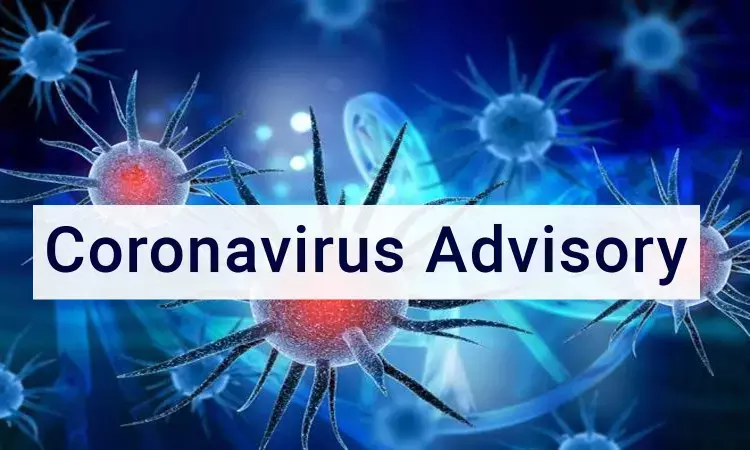- Home
- Medical news & Guidelines
- Anesthesiology
- Cardiology and CTVS
- Critical Care
- Dentistry
- Dermatology
- Diabetes and Endocrinology
- ENT
- Gastroenterology
- Medicine
- Nephrology
- Neurology
- Obstretics-Gynaecology
- Oncology
- Ophthalmology
- Orthopaedics
- Pediatrics-Neonatology
- Psychiatry
- Pulmonology
- Radiology
- Surgery
- Urology
- Laboratory Medicine
- Diet
- Nursing
- Paramedical
- Physiotherapy
- Health news
- Fact Check
- Bone Health Fact Check
- Brain Health Fact Check
- Cancer Related Fact Check
- Child Care Fact Check
- Dental and oral health fact check
- Diabetes and metabolic health fact check
- Diet and Nutrition Fact Check
- Eye and ENT Care Fact Check
- Fitness fact check
- Gut health fact check
- Heart health fact check
- Kidney health fact check
- Medical education fact check
- Men's health fact check
- Respiratory fact check
- Skin and hair care fact check
- Vaccine and Immunization fact check
- Women's health fact check
- AYUSH
- State News
- Andaman and Nicobar Islands
- Andhra Pradesh
- Arunachal Pradesh
- Assam
- Bihar
- Chandigarh
- Chattisgarh
- Dadra and Nagar Haveli
- Daman and Diu
- Delhi
- Goa
- Gujarat
- Haryana
- Himachal Pradesh
- Jammu & Kashmir
- Jharkhand
- Karnataka
- Kerala
- Ladakh
- Lakshadweep
- Madhya Pradesh
- Maharashtra
- Manipur
- Meghalaya
- Mizoram
- Nagaland
- Odisha
- Puducherry
- Punjab
- Rajasthan
- Sikkim
- Tamil Nadu
- Telangana
- Tripura
- Uttar Pradesh
- Uttrakhand
- West Bengal
- Medical Education
- Industry
National Institutes of Health releases guidelines for Covid 19 treatment

National Institutes of Health (NIH) has issued "living" treatment guidelines of Covid 19. These Treatment Guidelines have been developed to inform clinicians how to care for patients with COVID-19.The recommendations of which shall be updated online as and when new data from peer-reviewed publications and other authoritative information become available.Panel members include representatives from federal agencies, health care and academic organizations, and professional societies.
Main recommendations are-
1.Currently there are no Food and Drug Administration (FDA)-approved drugs for COVID-19. However, an array of drugs approved for other indications, as well as multiple investigational agents, are being studied for the treatment of COVID-19 in several hundred clinical trials around the globe.
2.The clinical data to recommend for or against the use of chloroquine or hydroxychloroquine for the treatment of COVID-19 is not sufficient. In case it is to be used,clinicians should monitor patients for adverse effects, especially prolonged QT interval.
3.The Data to recommend for or against the investigational broad-spectrum antiviral remdesivir (Gilead Sciences)is also inadequate.The drug was originally developed for Ebola and Middle East respiratory syndrome (MERS), but is currently in clinical trials for COVID-19 and has been made available to some patients on a compassionate use basis.
4.The use of the combination hydroxychloroquine plus azithromycin is not recommended because of potential toxicities, nor is the HIV protease inhibitor lopinavir/ritonavir (Kaletra, AbbVie) because of unfavorable pharmacodynamics and negative clinical trial data.
5.Thr clinical data to recommend for or against the use of convalescent plasma or hyperimmune immunoglobulin for the treatment of COVID-19 is insufficient. Data are also insufficient as to the use of interleukin-6 inhibitors, such as tocilizumab, and interleukin-1 inhibitors, such as anakinra. Clinical trials aside, the panel recommends against using other immunomodulators, such as interferons, because of their toxicity and the fact that they have been shown to be ineffective in the treatment of severe acute respiratory distress syndrome (ARDS) and MERS. Similarly, the panel recommends against use of Janus kinase inhibitors, such as baricitinib, because of their broad immunosuppressive effects.
6.The panelists recommend against the routine use of systemic corticosteroids for mechanically ventilated COVID-19 patients without ARDS, but they endorse the use of low-dose therapy for adults with COVID-19 who are experiencing refractory shock. Corticosteroids or nonsteroidal anti-inflammatory drugs should not be discontinued for COVID-19 patients who are already taking these drugs for other conditions.
7.The guidelines also advise against the use of angiotensin-converting enzyme inhibitors or angiotensin receptor blockers for COVID-19 patients, but these drugs should be continued for patients who are already taking them for cardiovascular and other conditions. Similarly, statins should be continued in those taking them for preexisting conditions but should not be prescribed for COVID-19 outside of clinical trials.
8.Data are insufficient to recommend for or against the routine use of extracorporeal membrane oxygenation for patients with COVID-19 who are experiencing refractory hypoxemia.
8.The Panel recommends against the routine use of systemic corticosteroids for the treatment of mechanically ventilated patients with COVID-19 without ARDS .
9.In mechanically ventilated adults with COVID-19 and ARDS, there are insufficient data to recommend either for or against corticosteroid therapy in the absence of another indication (CI).
10.In COVID-19 patients with refractory shock, low-dose corticosteroid therapy is preferred over no corticosteroid therapy .
It is important to stress that the rated treatment recommendations in these Guidelines should not be considered mandates. The choice of what to do or not to do for an individual patient is ultimately decided by the patient together with their provider.
Dr Kamal Kant Kohli-MBBS, DTCD- a chest specialist with more than 30 years of practice and a flair for writing clinical articles, Dr Kamal Kant Kohli joined Medical Dialogues as a Chief Editor of Medical News. Besides writing articles, as an editor, he proofreads and verifies all the medical content published on Medical Dialogues including those coming from journals, studies,medical conferences,guidelines etc. Email: drkohli@medicaldialogues.in. Contact no. 011-43720751


